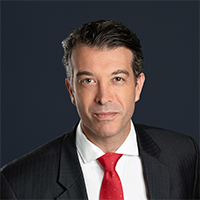There is a common misconception out there that a Chief Financial Officer (CFO) is a role only available to the large corporate. However, if you continue to hold this view you could be doing your business a critical injustice. Having the commercial guidance that a CFO can provide to get your business from where you are now to where you want to be is one of the best investments a business owner can make. Nowadays the CFO offering is incredibly flexible and affordable with options ranging from an full time CFO right through to a Virtual CFO off site.
What to do
Firstly, you need to ask yourself whether your business needs the following:
- More financial expertise to help you boost performance
- More accurate financial figures
- Advice on how to get your business to the next level
- Strategic business advice and guidance
- Help to implement better financial systems and processes
- Help to manage your business’ growth and ensure you maintain healthy cashflow
- Advice and support to undertake a business critical project
Whilst your accountant may be providing sound tax advice and ensuring you are compliance-ready, most SMEs do require a more sophisticated level of advice.
It can be foreign territory engaging such services so it is a wise idea to have a better understanding of what a CFO would start to implement in your business if you decide to go down this path. Below is a summary of what you can expect.
Strategic Business Planning
A strategic business plan will help you define the direction of your business as well as what you hope to achieve. It will also help to make informed decisions regarding resource allocation, spending and capital management.
By undertaking a financial analysis of the business a CFO can prepare a strategic business plan to support the objectives and targets of the directors and the business which covers:
- Overall business goals and objectives
- Business development strategies
- Outline of the corporate business structure
- Staffing structure and assignment of responsibilities across the business
- Human resource strategies
- Core recommendations for improving business performance.
Financial and Reporting Systems Review
A bookkeeper or accountant often make mistakes, particularly within corporate groups where inter-company loans, capital, assets and liabilities are involved, which can result in discrepancies and errors in the business accounts. A CFO will be able to address and efficiently resolve any complex accounting errors or issues. Common errors include:
- Client debtors position does not agree with financial accounts
- Client payables position does not agree with financial accounts
- Tax payable position with ATO does not agree with financial accounts
- Inter-company loans do not agree between companies
- Income or expenses are over or understated
- Incorrect accounting treatments for specific items are recorded, meaning a profit may actually be a loss, resulting in tightened cash flow.
Only a very experienced CFO can identify and resolve these types of issues within your accounts. Critical to decision making requires extracting reliable and timely, weekly and monthly, reports from your business’ software systems. Key drivers to extracting this information include:
- Correct structure of the software system for reporting purposes
- Effective implementation of the system so reports are produced efficiently and in a timely manner
- Data input and its accuracy
- Extracting the correct reports to meet business needs.
The ability to understand your business beyond turnover is very important. For example, performance will improve if you obtain a better understanding of:
- Number of new clients/products
- Where and how new clients are sourced
- Average pricing
- Average costs
- Key performance drivers
- Project performance
Financial Budgeting
An effective financial budget is critical to business success. Budgeting is more than just numbers. A budget breaks down what drives the business, like the cost of goods sold and staff performance, and puts targets around them so you have a clear plan to reach your ideal financial outcome.
A CFO can prepare sophisticated financial budgets that are aligned with key performance indicators (KPIs), objectives and the financial targets for the directors and the business. The budgets should establish the fixed costs, like overheads, incurred for the business to break even, as well as the revenue and associated variable costs, like marketing, that will deliver profits back to the business.
Financial Modelling
Financial modelling is a highly specialised discipline and for businesses looking to raise capital, a comprehensive financial model that is aligned with a valuation of the business is essential. A CFO should create a sophisticated model that covers:
- Business KPIs
- Considered business financial assumptions
- Profit & loss budget over three years
- Cash flow budget
- Balance sheet budget
Advisory Services
Outside of the strategic based services to help your business grow, a commercial CFO can also provide other high level advisory services if it is time sell your business or perhaps merge with another. Services that you can expect within this space would be succession planning, corporate advisory, business valuations, as well as mergers and acquisitions.
On a final note
Remember that taking on a CFO doesn’t necessarily have to be a long term engagement. You can pick and choose which services are most vital to your business needs. Be sure to do your background check – find out what the CFO’s history is, what kind of experience they have, how much commercial exposure they’ve had and so on. Whilst it may be an initial investment when going down this path, it is one that will continually give back.


